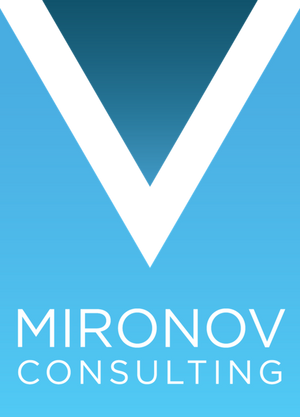Dear Joblorn: I’m a tech product marketer and have just hung out my consulting shingle. What kinds of projects and clients should I be looking for? What problems do clients want me to solve?
Dear Joblorn: I’ve blogged some about product management, including why Steve Jobs was great, but it hasn’t driven interest in me as a product management consultant. What should I write about?
Sigh. I’ve had this conversation dozens of times – thrice this month – so finally captured it.
There are lots of folks who are (or want to be) product management / product marketing consultants. They routinely describe themselves generically (“I’m a product management consultant”) and don’t offer much traction for potential clients who might want to hire them. They present themselves as Jacks/Jills of All Product Trades. The underlying assumptions are that prospects already know what product management/marketing is; that all consultants are equally (un)qualified; that problems are single-faceted and easily identified; and that prospects have the time to study our résumés and figure out for themselves how we can help. Nope, nope, nope and nope.
This seems entirely backward to me – being solutions in search of a need – rather than doing what we’re trained to do for our own products. When put in charge of some generic piece of technical voodoo, we know that we should [1] figure out what’s unique and different about it; [2] try to identify buyers who want that differentiation; and [3] tell them a story that connects the dots. Positioning. Yet we often fail to notice that our own consulting services need the same treatment. As consultants, we are the service that needs marketing and positioning. So let’s put our product marketing hats on and strategically position what we do.
[1] What unique skills and experience do you have?
As with any product/service, you need to identify how you’re different from some generic consultant. Your last full-time gigs may have been in transportation logistics – or supermarket couponing or financial analysis tools or housetraining autonomous robots. You might have some deep UX/UI design skills – or SQL coding or experience ghostwriting online dating profiles. Perhaps you have a degree in early childhood education – or Mayan archeology.
Likewise, you probably did some cool things in these gigs:
- Stepped in as interim product owner for a newly agile team, then located and trained a full-time PO
- Unwound some deep dysfunction in your distribution channel, and boosted sell-through
- Tore apart two seemingly similar SMB segments and positioned each more thoughtfully
Product management/marketing covers a multitude of sins, so clarity matters. Also, note that your experiences are potential features, not benefits, until we know why some specific kind of client needs your uniqueness.
[2] What do you want to do (specifically), and for whom (specifically)?
Being a consultant can be a grind, especially if you’re working on things you hate. So you don’t have to restrict yourself (for instance) to physical mail handling hardware just because you spent five years deploying systems for the US Postal Service. Sort through your résumé for projects that you really loved and were good at. You’ll want to construct some ideal theoretical engagements.
- Agile product owner and UX/UI design lead for real-time investment portfolio trading systems
- Standardizing social media toolkits and offer outreach for high-end consumer clothing brands
- Deep analytics of marketing funnels for online SMB lead management and sales tracking
One easy crosshatch is segments that you know and roles that you enjoy. Notice that some of these crosshatches may be tiny (product managing space-bound remote sensor devices) and others may be crowded (CRM configuration for financial services).
This is a creative exercise, not pure analysis. Synthesize some possible work/segment stories that excite you and have an audience. Really good positioning will help you focus on the right prospects and offerings.
[3] Start telling a differentiated story.
Pick one or two deeply differentiated solution areas, and make yourself the expert.
If you’re blogging and speaking about (for instance) device manageability challenges in the Internet of Things, you’ll naturally start running into companies who care about IOT. And their senior folks will understand these issues. And just might need help planning device management strategies. (Marketing gurus like Marcia Kadanoff have been calling this “content marketing” for decades.)
People and companies in adjacent spaces will stumble across your work and make connections that you may have missed. (Who knew that managing millions of wearable athletic tracking devices was like managing millions of remote water meters?)
Notice that companies in completely different businesses – consumer website building tools or automated investment portfolio design – will never read your blog or show up at your talks. And generic consultants can’t compete with the budding expert in the field. If you’ve chosen well, you’ll grow into the specialist you already claim to be. And eventually have a calendar full of client engagements.
[200 point bonus if you can skim my last year of posts/talks and figure out what narrow specialties I’ve been positioning for myself.]
Sound Byte
If you’re any good at product management/marketing, you know how to position products/services. As consultants, we’re our own products, so need to apply those tools to ourselves.

